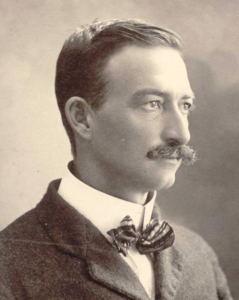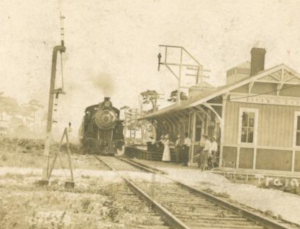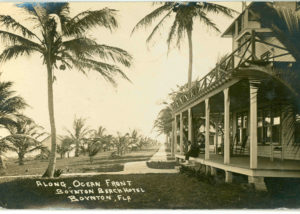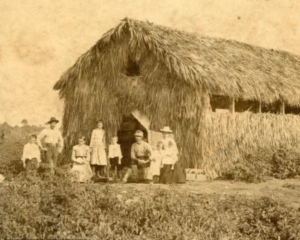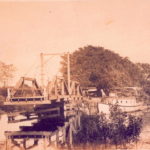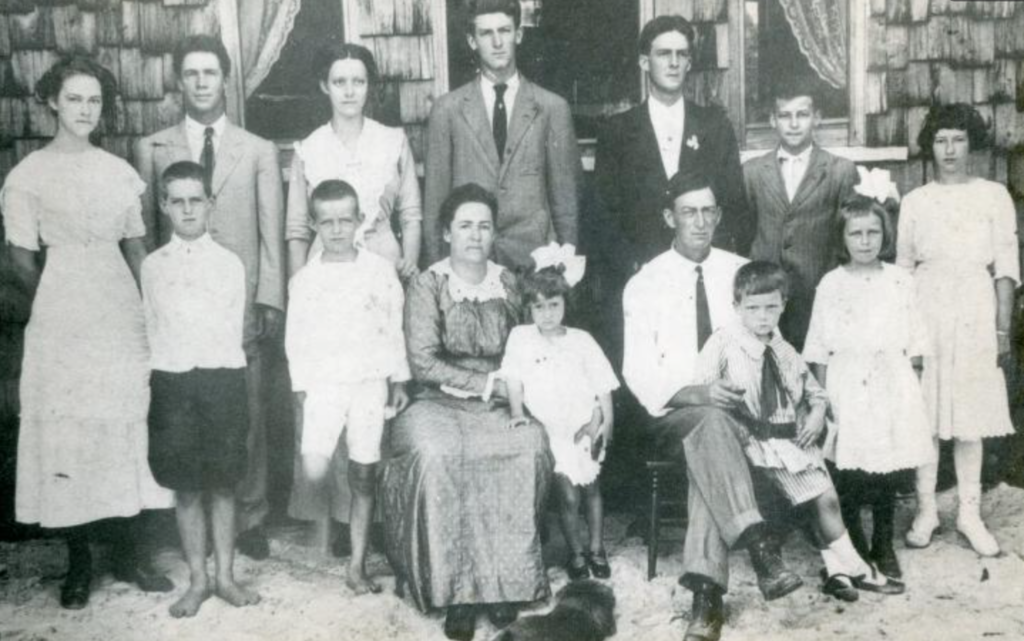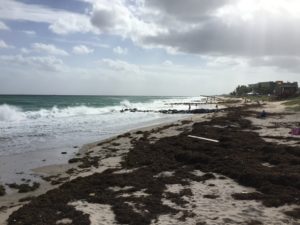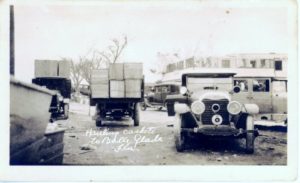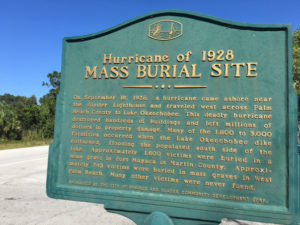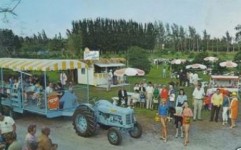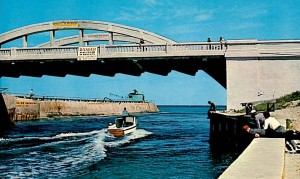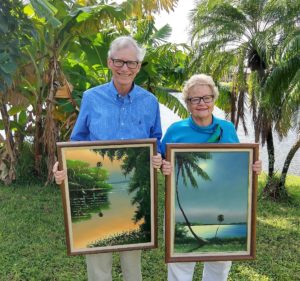Happy 100th Birthday Town of Boynton!
June 14th, 2020 commemorates the 100th anniversary of the Town of Boynton’s incorporation. We couldn’t let this significant date in history pass by without recognizing the notable event. In addition, it’s time to reveal some “hidden history,” about Boynton’s first mayor, forgotten with time.
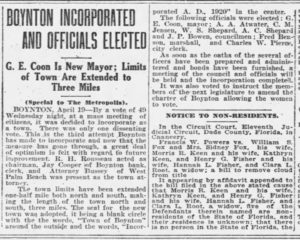
Boynton Votes to Incorporate, April 19, 1920, The Miami News
Boynton Incorporates
On Monday, June 14th, 1920 the town council adopted the minutes of the town’s formal organizational meeting. Two days earlier, on Saturday, June 12, G.E. Coon, Mayor, A.C. Shepard, C.M. Jensen, J.F. Bowen, A.A. Atwater, W.S. Shepard, Aldermen and B.F. Evans, Clerk conducted the inaugural meeting at the Masonic Hall on Ocean Avenue for the purpose of organizing the Town Council and electing a President of the Council. C.M. Jensen was nominated and voted in as president. At an April 19th, 1920 community meeting, Boynton’s citizens had voted 49 to 1 to incorporate.
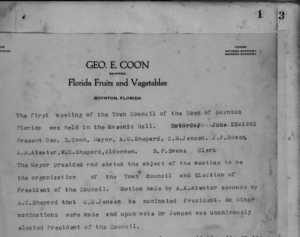
Boynton Town Council Minutes (12 June 1920) page 1
Boynton’s First Mayor
Very few people know that George Edward Coon served as Boynton’s first mayor. Coon’s portrait was not among the portraits of previous and current Boynton Beach mayors that graced the City of Boynton Beach chamber walls. For well over a half century, most people assumed that Horace Bentley Murray was Boynton’s first mayor.
A Mystery!
I worked as the Boynton Beach City Library archivist for fifteen years, and during that time I discovered that Coon was the inaugural mayor. I asked my colleagues at the Boynton Beach Historical Society, including several former Boynton mayors, and no one knew anything about Geo. E. Coon. At the time, Newspapers.com did not exist, and the clunky Google news archive yielded very little. It seemed that no photographs of Coon existed. It bothered me that someone from our past was forgotten, and I was determined to seek out the truth.
Piecing Together a Puzzle
Using my Ancestry.com subscription, I built a tree for Mr. Coon. Initially, I didn’t even know his first name. Census records, and other primary source documents helped, and eventually names, dates and birthplaces emerged. Coon married Abigail Hellier, and together they had one daughter, Marjorie. Yearbooks discovered at the Mandel Public Library of West Palm Beach showed Marjorie attended Palm Beach High School, and she taught school in Boynton after graduating from Florida Women’s College (FSU).
A Clear Picture Emerges
A few years ago, Christian Davenport, Palm Beach County’s archaeologist, notified me that one of his volunteers, Mary VanDerlofske, had ties to old Boynton. It turns out her grandfather was Walter Hellier, and Abigail Hellier Coon was his aunt. She didn’t know that George Coon was Boynton’s first mayor, but she advised that she had pictures.
Pictures!
I met with Mary at a small, privately owned bookstore, and we immediately bonded. She and I exchanged historic anecdotes and she shared some photos with me, including this dapper photograph of George Edward Coon, Boynton’s first mayor!
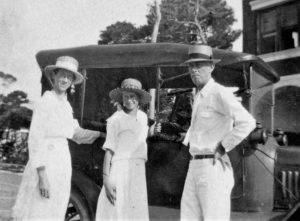
Below is a short biography of Coon, based on information that I found and supplemented with information from Stuart historian, Alice L. Luckhardt. http://stuartheritagemuseum.com/vignettes/
Geo. E. Coon 1863-1934
Born in Wisconsin in 1863, George Edward Coon lived in Michigan with his parents and two younger siblings. In 1880, while in his teens, he came south to the Indian River region and grew pineapples on ten acres of property purchased from John Jensen along the Indian River. Coon worked as a fruit grower and shipper and also served as postmaster for the Jensen settlement. He invested in and organized the Indian River Telephone Company. After his first wife died he married Abigail Hellier. Together they had one daughter, Marjorie Grace.
In the mid 1910s, the Coon family moved to Boynton. As he had family members in Jensen, he spent time in both Boynton and Jensen, actively leading in business and civic affairs until his death in 1934 at age 71.
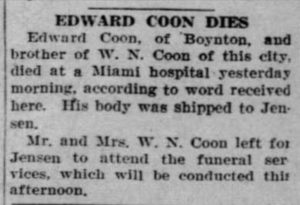
G.E. Coon obituary
Gone, and forgotten for so many years. Forgotten no more.
References
The Florida Star
Ft. Lauderdale News
The Miami News
The Palm Beach Post
1910 U.S. Census
1920 U.S. Census
City of Boynton Beach City Council Minutes
Luckhardt, Alice.
Vanderlofske, Mary.

